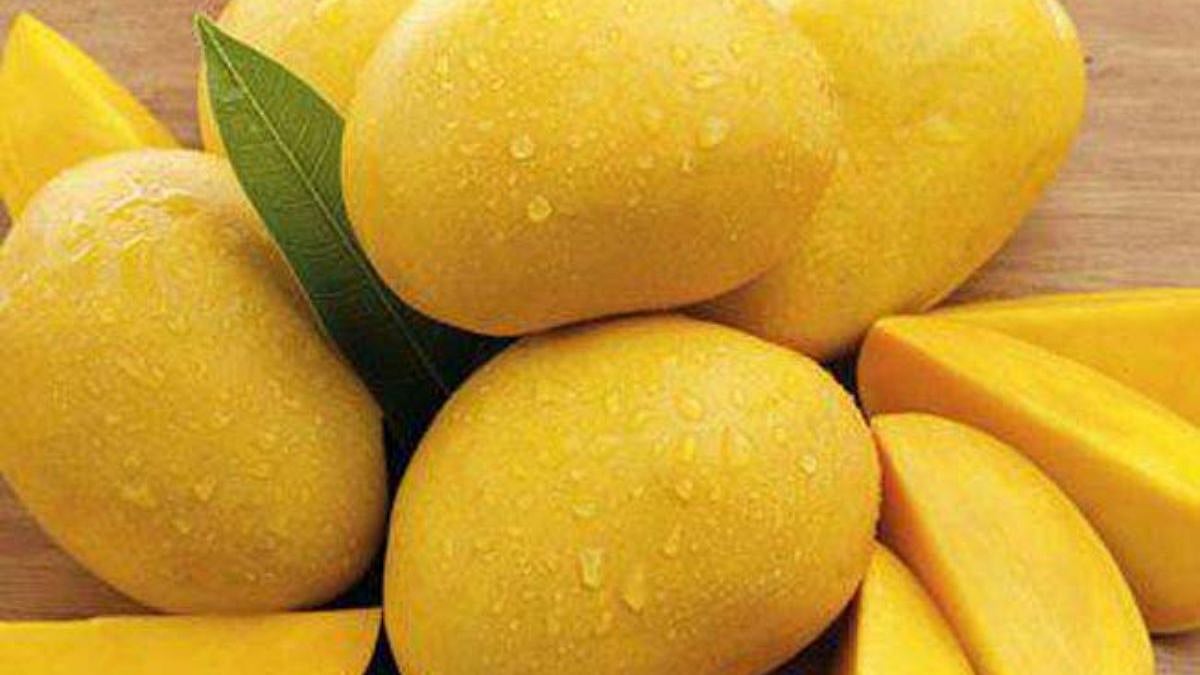Junagadh: Gujarat’s iconic Kesar mango is making a bold impact on the global stage, with exports reaching an impressive 689.5 metric tonnes in 2023-24. Revered for its deep saffron hue, rich sweetness, and irresistible aroma, the GI-tagged mango continues to strengthen its presence in international markets. As demand skyrockets, Gujarat solidifies its status as a key player in India’s mango export industry.
Mango cultivation in Gujarat dates back centuries, but it was in 1931 that the Kesar mango was officially introduced in Junagadh’s Gir region. The fruit derives its name from its distinctive saffron-colored pulp, with the Nawab of Junagadh famously naming it “Kesar” for its golden-orange glow. Today, the state boasts over 177,514 hectares of mango orchards, covering key regions such as Valsad, Navsari, Gir-Somnath, Surat, and Kachchh.
Gujarat’s mango production has been on a steady rise. In 2024, the state produced 1.08 million metric tonnes, up from 960,000 metric tonnes in 2023, according to the Gujarat Horticulture Department. Experts credit the region’s ideal climate and soil composition for the fruit’s premium quality.
Unlike Alphonso mangoes that thrive in coastal regions, Kesar mangoes are uniquely suited to Gujarat’s semi-arid conditions. The combination of sandy loam and black cotton soil, coupled with hot summers and moderate rainfall, enhances the fruit’s natural sugars. “The high temperature and mineral-rich soil contribute to the mango’s distinct sweetness and flavor,” explains Dr. Ramesh Patel, an agricultural scientist from Junagadh Agricultural University.
Gujarat’s mango industry plays a crucial role in the state’s agricultural economy. In 2021, the industry generated over ₹17 billion in revenue, showcasing its significance beyond just consumption. Farmers are leveraging advanced farming techniques, including drip irrigation, organic composting, and grafting, to improve both yield and quality despite climatic uncertainties.
As India remains the world’s largest mango producer, Gujarat continues to expand its global footprint. In the past five years, the state has exported over 2,500 metric tonnes of mangoes, with top buyers including the UK, US, and Canada.
To ensure compliance with strict international quality standards, the Gujarat Agro Radiation Processing Facility in Bavla, Ahmedabad, plays a pivotal role. This facility has processed and certified over 210 metric tonnes of Kesar mangoes in the last two years, facilitating smooth exports.
“Our mangoes have a strong presence in Europe and North America. With improved cold storage and logistics, Gujarat has the potential to further increase its global share,” says Prakash Mehta, an Ahmedabad-based exporter.
Despite its success, Gujarat’s mango industry faces challenges such as climate change, erratic monsoons, and market fluctuations. The state government is actively working on solutions, including subsidized irrigation schemes, better logistics, and scientific advancements in mango farming. Collaborations with institutions like the Indian Council of Agricultural Research (ICAR) and Gujarat Agricultural Universities aim to develop disease-resistant and climate-adaptive mango varieties.
